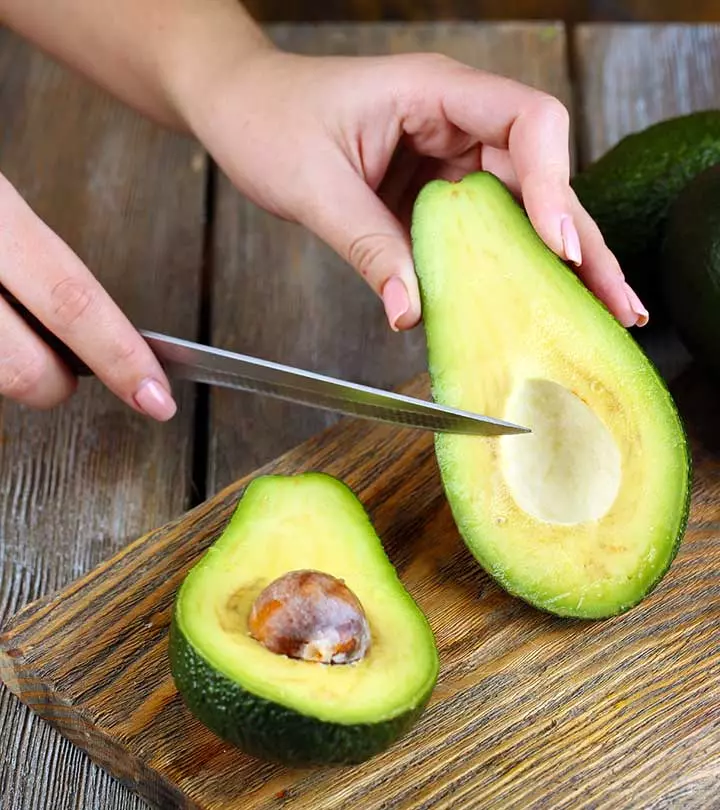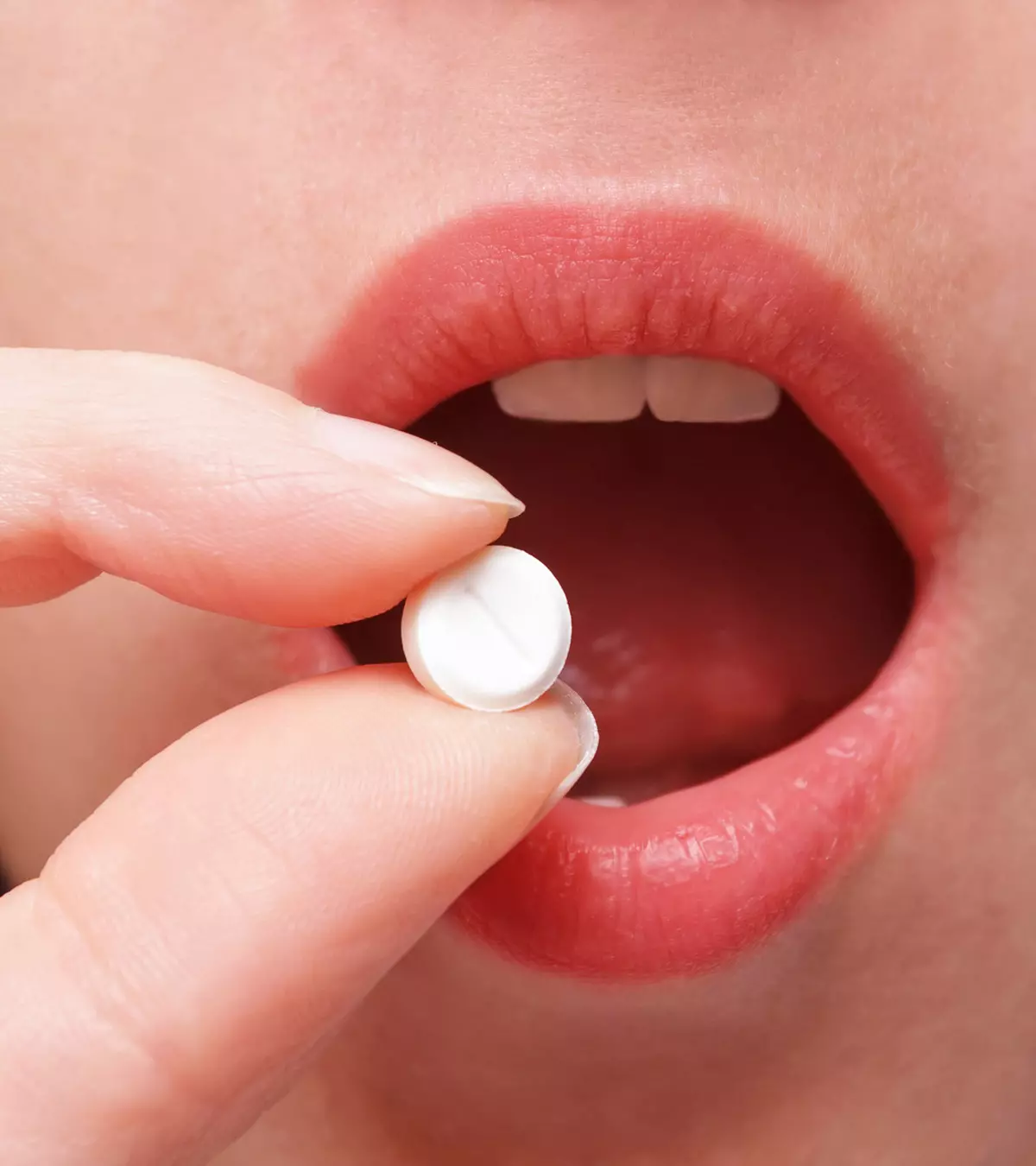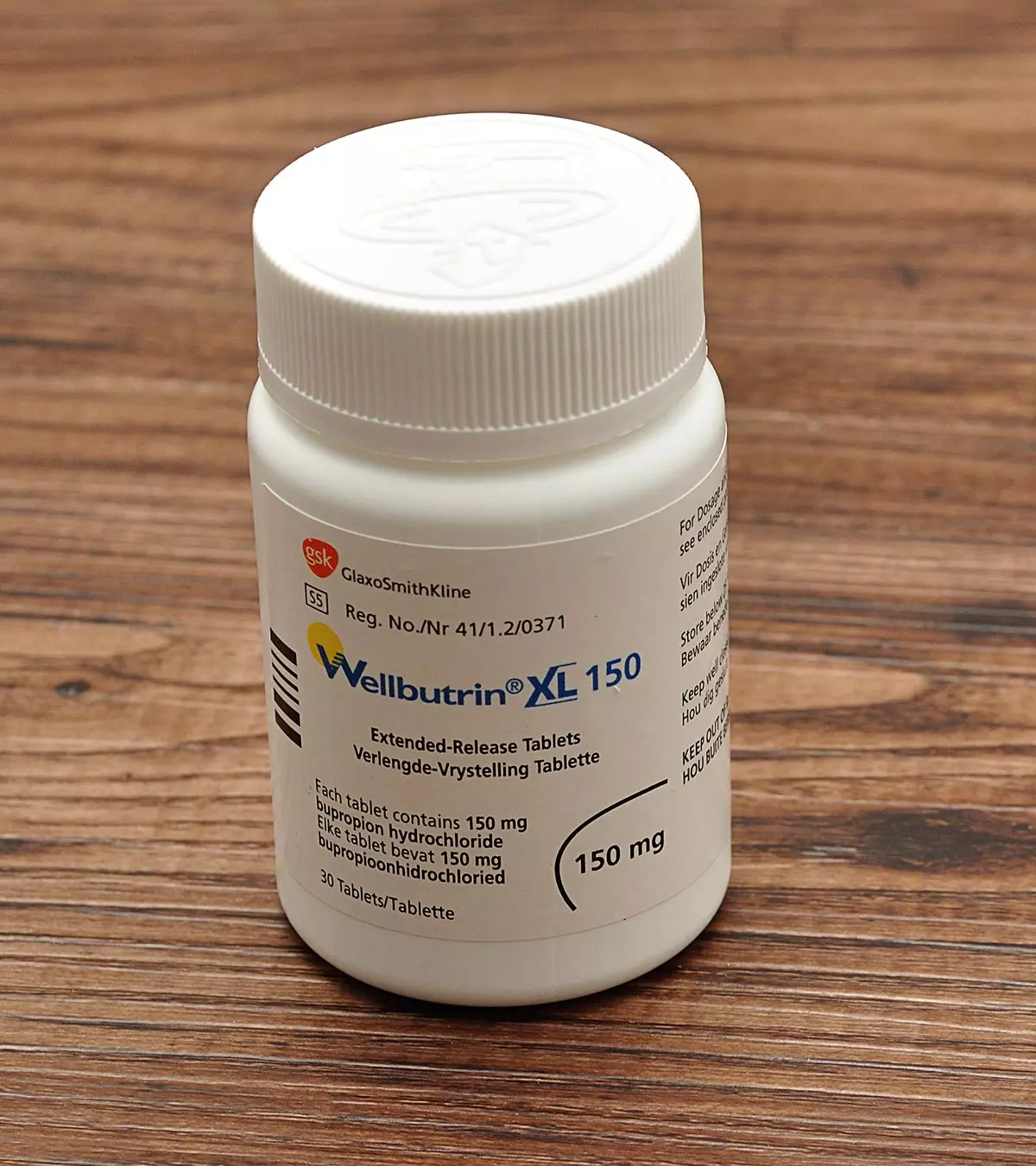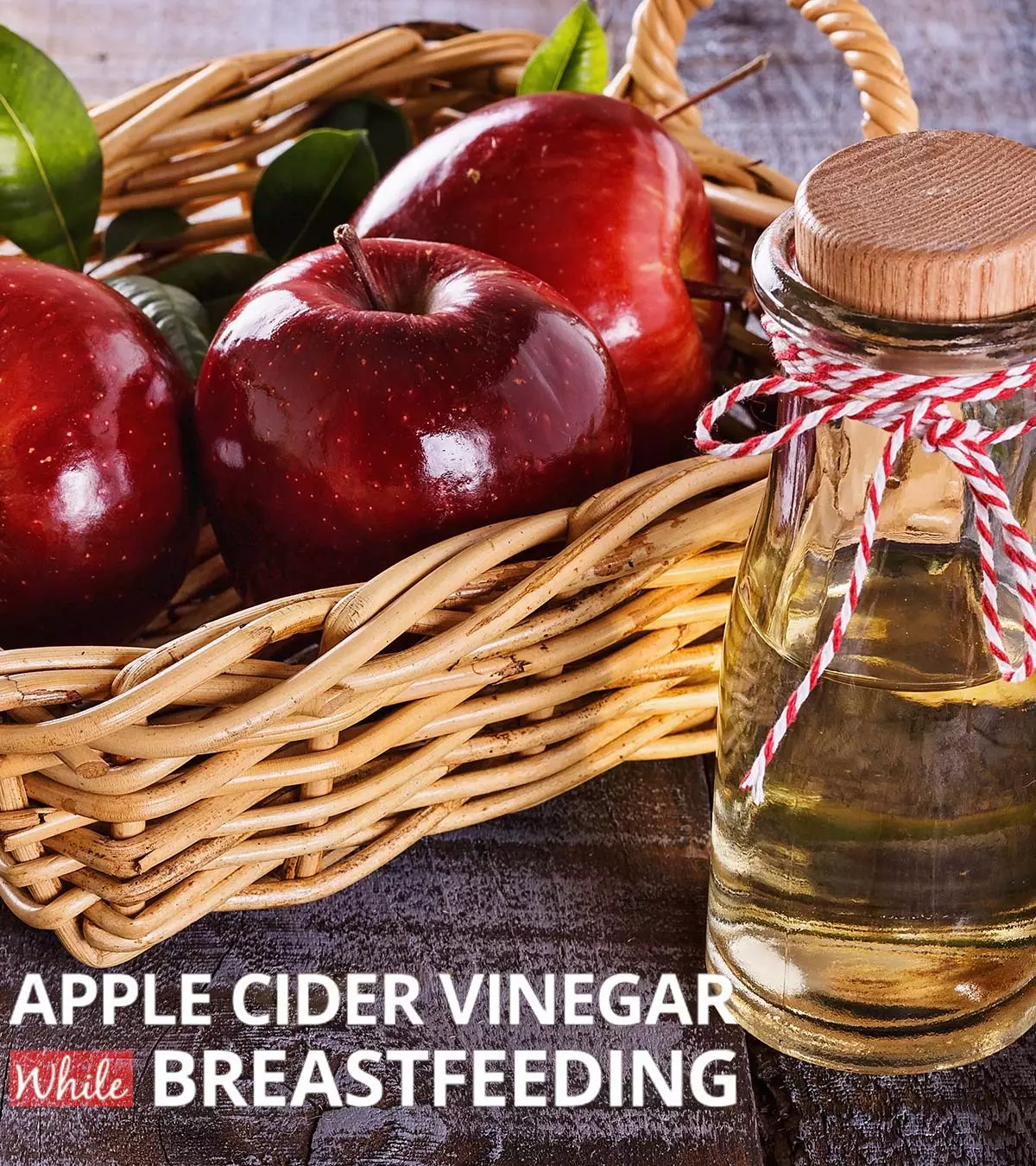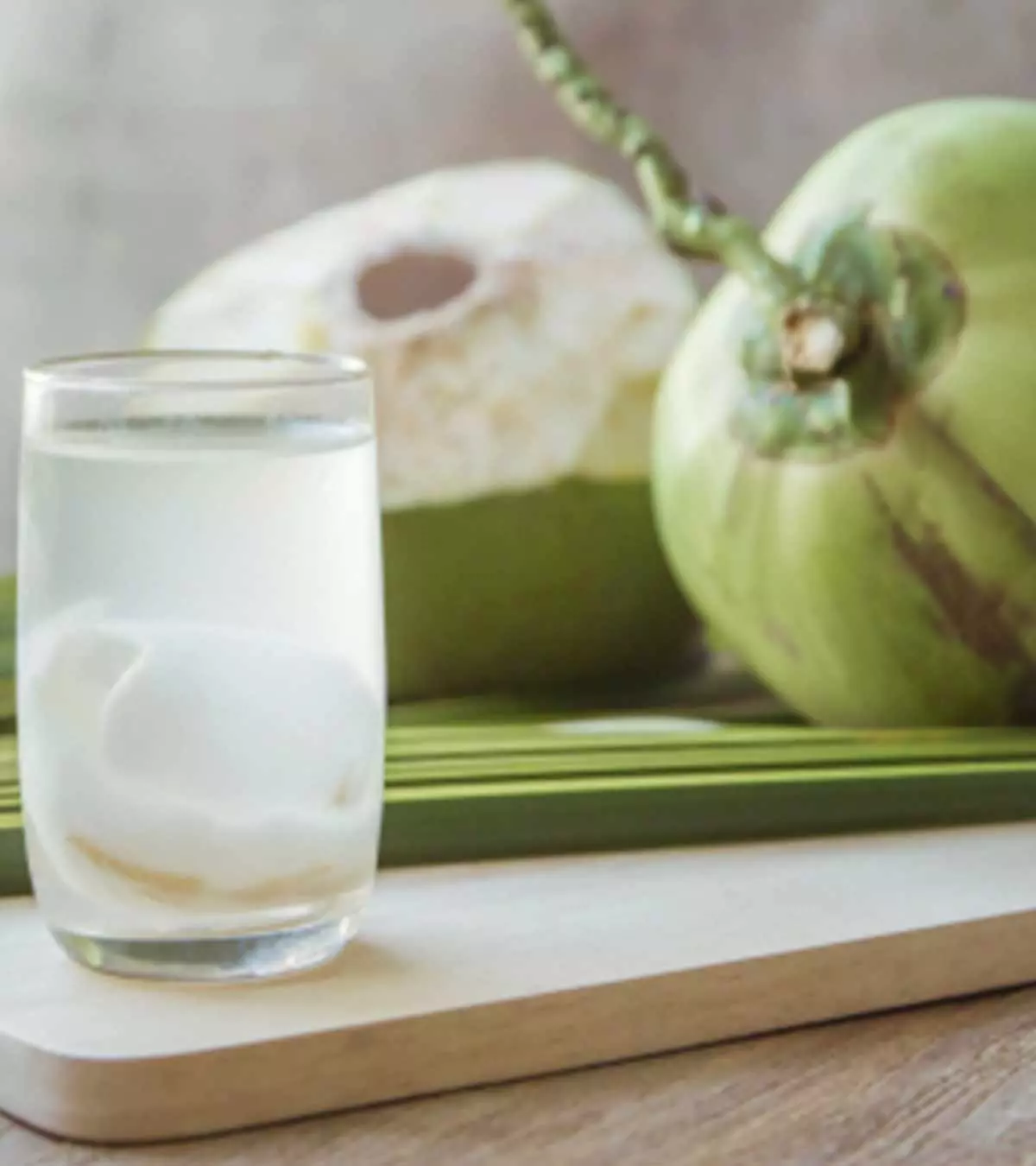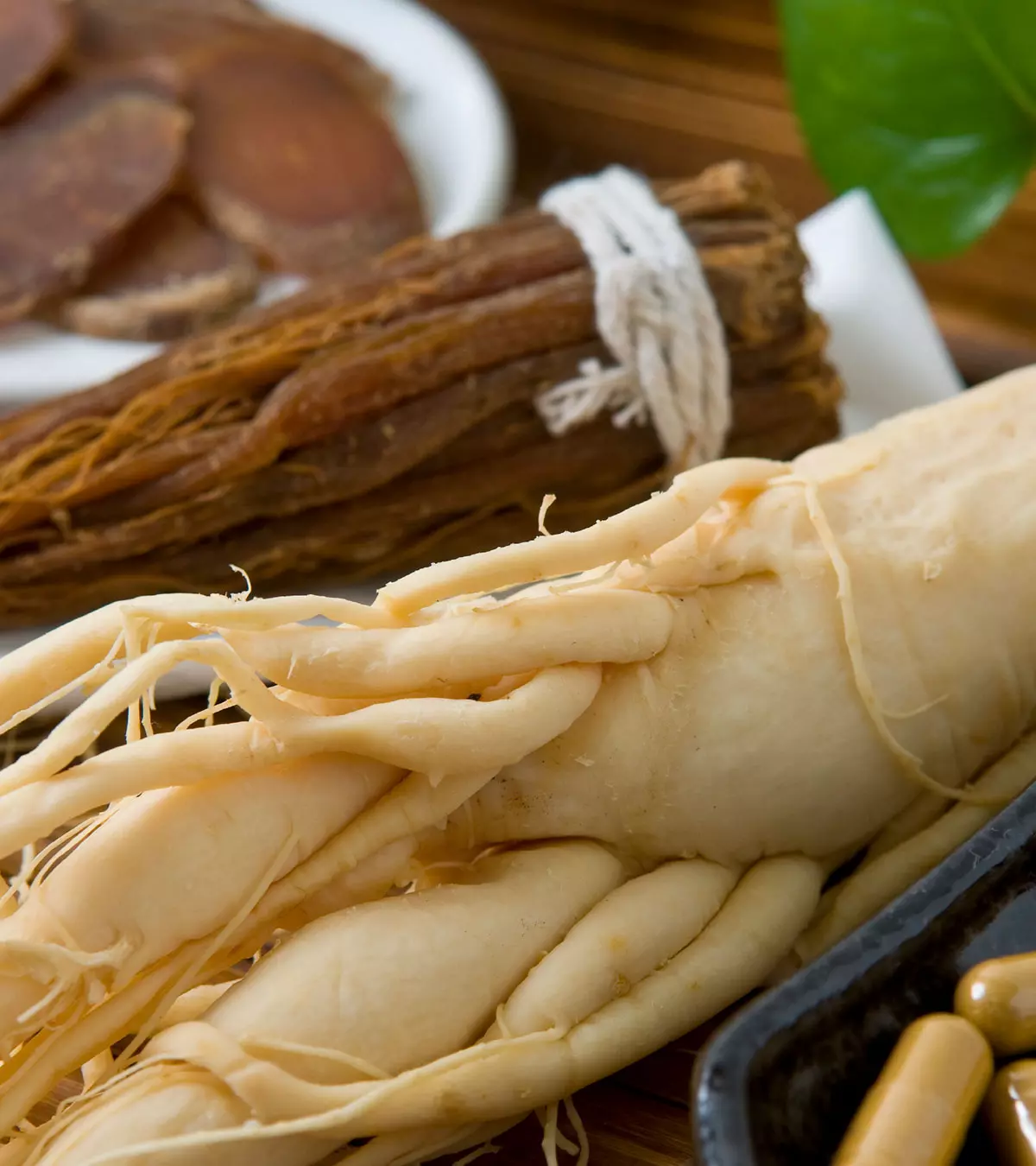
Image: iStock
A baby nursing at a mother’s breast is an undeniable affirmation of our rootedness in nature.” – David Suzuki.
Lactation is a phase that can be challenging for new mothers. Frequent feeding and caring for a newborn often result in sleep deprivation, lethargy/fatigue, and stress, tempting mothers to use herbs such as ginseng while breastfeeding.
Ginseng is popular for enhancing vitality, vigor, and overall wellness. In Chinese cultures, Ginseng has been used for centuries as a traditional medicine for its postulated health benefits. Generally, the use of ginseng is safe for adults. However, it is unclear whether ginseng is safe or effective for lactating women or can be used as an alternative medicine for various conditions. Hence, ginseng or any products containing ginseng should be used under expert supervision.
Further, studies show that ginseng doesn’t have any lactation-related benefits. However, its use is prevalent among mothers as an energy source and for rejuvenation.
Keep reading to learn more about whether it is safe to use ginseng while breastfeeding and the right ways to use it.
Key Pointers
- The most common varieties of ginseng are American, Asian, and Siberian.
- There is not much scientific evidence available to prove the safety of ginseng for lactating mothers.
- It is believed that consuming ginseng might adversely affect the quality and quantity of breast milk.
- It is safer to consult a doctor before including ginseng in a nursing diet.
What Is Ginseng?
According to New World Encyclopedia “Ginseng is one of the 11 species of slow-growing perennial plants with fleshy roots, belonging to the genus Panax of the family Araliaceae.”
There are three major varieties of ginseng, but only two are true or Panax ginseng. The true Panax ginsengs are Chinese Ginseng, Korean Ginseng and North American Ginseng. Both Asian and American ginsengs contain ginsenosidesiPharmacologically active compounds in ginseng that have anti-inflammatory and antioxidant properties. , which are the substances thought to give ginseng its medicinal properties. Ginseng is sometimes called an “adaptogen,” a herb or herbal supplement that can help our body deal with physical and mental stress.
1. American Ginseng
It is an herb that mainly grows in North America. It is a light tan, gnarled root that often looks like a human body with stringy shoots for arms and legs. It contains ginsenosides and is sometimes called an adaptogen. It is useful for treating headaches, fever, indigestion, and infertility.
2. Asian Ginseng
Asian ginseng is native to China and Korea. It is also one of the true Ginsengs and has numerous health benefits. It supports overall health and boosts one’s immunity. It is useful in treating erectile dysfunctioniA condition of experiencing difficulty in achieving and maintaining penile erection. , diabetes, hypertension and hepatitis-c.
 Be watchful
Be watchful3. Siberian Ginseng
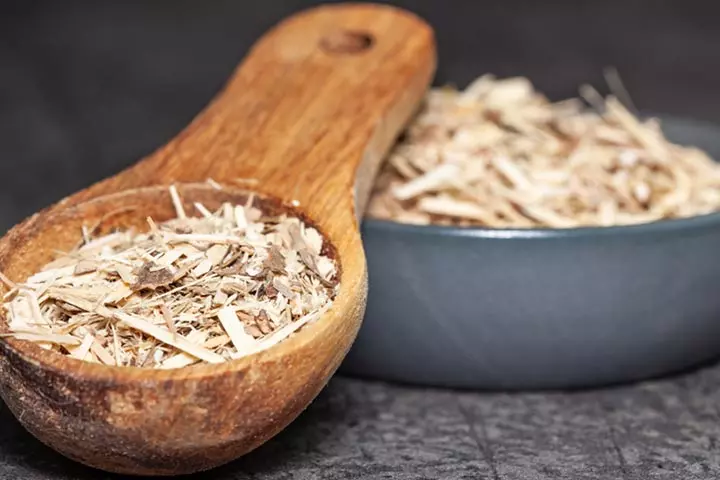
It is not a true Ginseng. It is completely different from American and Asian Ginseng and has different active chemical components. It is more useful for maintaining good health rather than treating ill-health. Its regular use is said to improve memory and increase longevity.
Is It Safe To Take Ginseng While Breastfeeding?
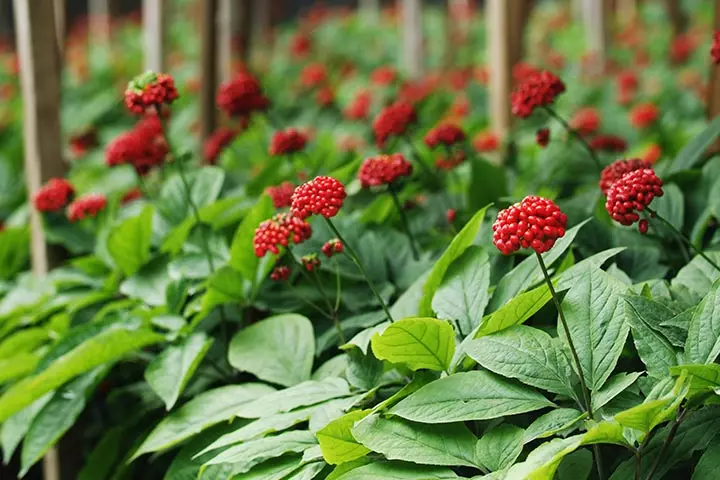
Although there is limited knowledge on the usage and safety of herbs for breastfeeding women, mothers should exercise extra caution with certain drugs that might affect their nursing infants or have adverse effects on them. Here are some great sources that can provide us with valuable information regarding the use of ginseng while breastfeeding.
- Dr. Hale’s book medications and mother’s milk is a great book that guides us about medication during the lactation period. In this book, he has listed ginseng as a herbal drug that should be avoided during pregnancy, though in a separate entry he gives it an L3 (moderately safe).
- According to KellyMom there is no data on the transfer of ginseng into human milk and while no pediatric concern is reported but caution is urged with the use of ginseng (1).
- There is one more informational finding about the use of ginseng during breastfeeding. The research says that although no evidence exists on the safety and efficacy of ginseng in nursing mothers and infants, because of its possible estrogenic activity and lack of information, it is best avoided during breastfeeding and early postpartum period (2).
 Research finds
Research finds- EMedtv states the adverse effect of ginseng on breast milk. They said that since ginseng has estrogenic-like effects, it could theoretically decrease the quality and quantity of breast milk.

- According to Dr. Jay Gordon extreme caution should be taken when using Panax ginseng. There have been reported pediatric cases of tachycardia and hypertension that appears to be in direct correlation between breastfeeding mother’s uses of panax ginseng. The other possible side effects of ginseng while breastfeeding are nervousness, shakiness, insomnia, skin rashes, heightened anxiety, and diarrhea. Logic would allow, though Ginseng contains such strong chemical compounds (Ginsenosides) it is not wise to expose a baby’s delicate immune systems to such adverse effects. You should also be aware that Panax ginsengs could contribute to a low milk supply during the early stages of motherhood (3).
Best Steps To Take

As a conclusion if you are a nursing mother,
- Listen to your body i.e., eat when you are hungry, sleep when tired and drink water when thirsty. Every mother is different, hence each one has a different requirement and needs.
- Always speak to a medical professional before taking any medication or herbal supplements while breastfeeding.
- Do not assume herbal medicine is 100% safe, just because they are natural. These herbs can be powerful and some can be potentially dangerous and toxic.
- Although ginseng is a powerful herb that has great advantages for a normal adult, because there is no fixed evidence regarding its safety for lactating women, it is best to avoid it during lactation. And try to choose another option for combating mental and physical stress under proper medical supervision.

Frequently Asked Questions
1. Is green tea with ginseng safe while breastfeeding?
While small amounts of green tea while breastfeeding are considered safe, no studies indicate the effects of green tea when consumed with ginseng (4). Small quantities of green tea with ginseng could be fine, but you may still consult your doctor and exercise caution.
2. How does ginseng affect breast milk?
There is no conclusive evidence that ginseng affects breastmilk. Nonetheless, due to the risk of possible estrogenic activity and a lack of information during breastfeeding, it is mainly advised against using ginseng while breastfeeding (5).
3. What are the natural alternatives to ginseng for breastfeeding mothers?
Various herbs are beneficial for breastfeeding mothers and may help increase breast milk production. These include fenugreek, blessed thistle, fennel, anise, and alfalfa. However, it is helpful if you consume them in moderation. Contact your doctor before including them in your diet (7).
Ginseng is a herbal medicine used in Chinese medicine for centuries for its possible benefits such as enhancing digestion and immunity. You should be careful before using ginseng for lactating mothers, as adequate medical research is not available to prove its safety. The impact of ginseng on breast milk or its interaction with other drugs is also unknown. It is suggested to avoid using any herbal or other medications without the doctor’s consent. If you happen to consume ginseng accidentally and notice alterations in your breastmilk, it is suggested to consult your gynecologist or lactation counselor.
Infographic: Ginseng Drug Interactions And Side Effects
Ginseng is a herb that could be used for treating a few medical conditions; however, its use is contraindicated during breastfeeding due to its possible adverse effects on the mother and her baby. Here is an infographic explaining ginseng’s drug interactions and side effects while breastfeeding. Illustration: Momjunction Design Team
Illustration: How Safe Is Ginseng While Breastfeeding
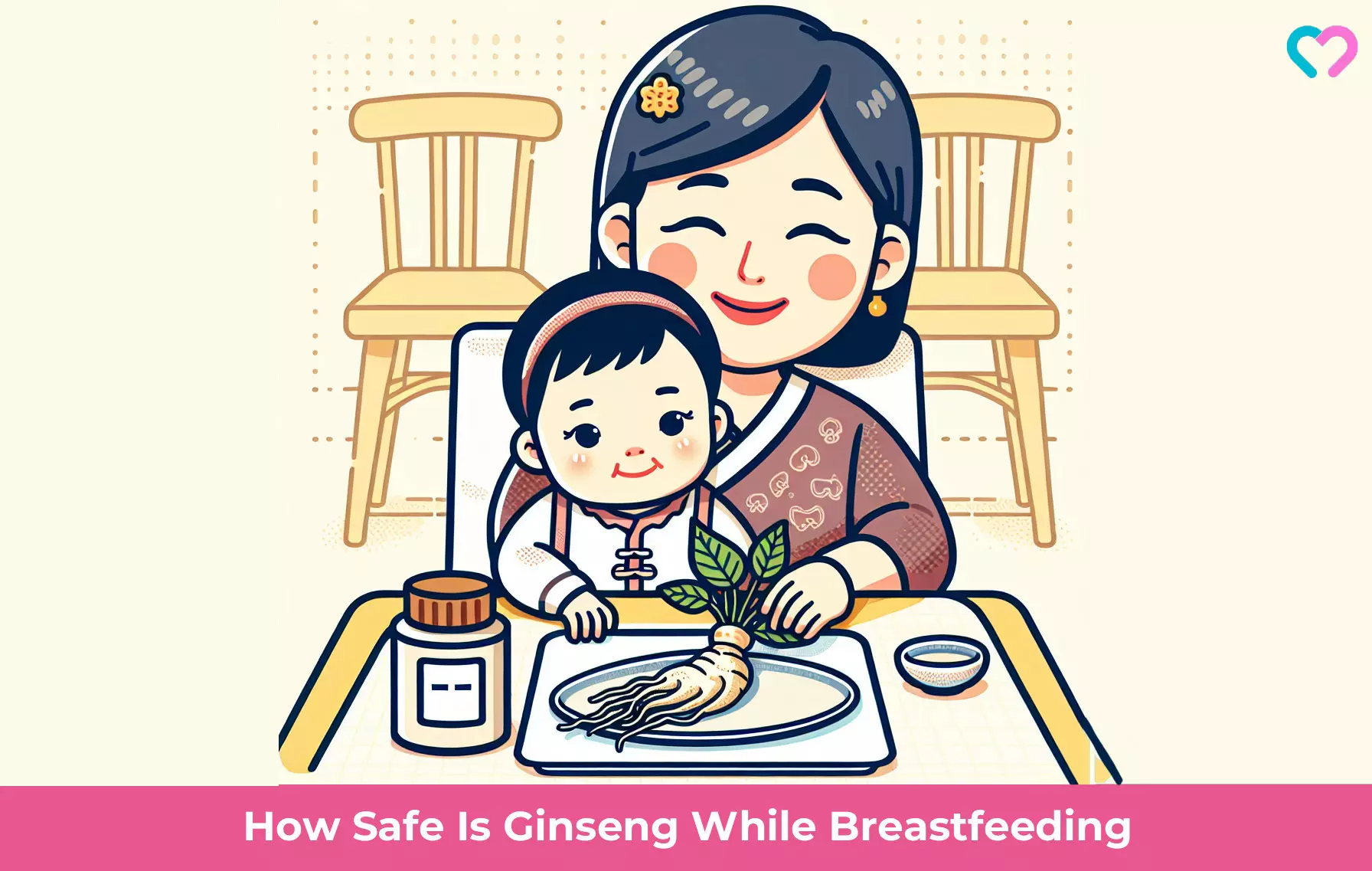
Image: Dalle E/MomJunction Design Team
Ginseng is a powerful herb with many health benefits. Learn how it can help improve your energy, focus, and overall well-being with this educational video.
References
- Herbs to avoid while breastfeeding.
https://kellymom.com/bf/got-milk/herbs_to_avoid/ - Ginseng while breastfeeding.
https://www.drugs.com/breastfeeding/ginseng.html - Ginseng Is it safe for nursing mothers?
https://www.drjaygordon.com/blog-detail/ginseng-is-it-safe-for-nursing-mothers#:~:text=If%20a%20nursing%20mother%20still%2C%20skin%20rashes%2C%20and%20diarrhea - Katarzyna Budzynska et al; (2013); Complementary Holistic and Integrative Medicine: Advice for Clinicians on Herbs and Breastfeeding.
https://www.ncbi.nlm.nih.gov/pmc/articles/PMC4530286/ - Ginseng National Library of Medicine.
https://www.ncbi.nlm.nih.gov/books/NBK501814/ - Asian Ginseng.
https://www.mountsinai.org/health-library/herb/asian-ginseng - Common herbs and foods used as Galactogogues.
https://journals.sagepub.com/doi/pdf/10.1177/1941406411406118 - J L. Voogt; (1978); Control of hormone release during lactation.
https://pubmed.ncbi.nlm.nih.gov/361330/#:~:text=Suckling%20and%20the%20presence%20ofthe%20quantity%20of%20milk%20produced.
Community Experiences
Join the conversation and become a part of our nurturing community! Share your stories, experiences, and insights to connect with fellow parents.
Read full bio of Arushi Agrawal
Read full bio of Swati Patwal
Read full bio of Rohit Garoo
Read full bio of Anindita Ghatak










